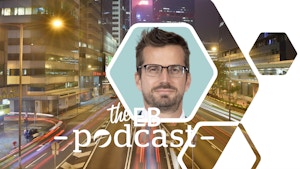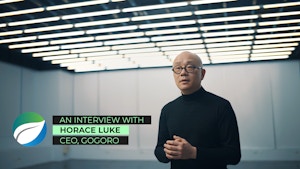Asia Pacific‘s leading platform for sustainable development
#electrification News

The pilot comes as industry calls for non-financial measures to accelerate nationwide EV adoption.

With the right policy, coal is not essential to ensuring a reliable electricity supply.

Solar power, electric vehicles (EVs) and other clean-energy technologies drove more than a third of the growth in China’s economy in 2025 – and more than 90 per cent of the rise in investment.

For a decade, solar power has been bringing opportunities to China’s villages. What does that mean today?
#electrification Opinion

Policy & Finance
Trade wars destroy the planet
Given that China is the world’s largest emitter and has a high carbon intensity, some assume that its trade war with the United States, which has shifted production to third countries, would have environmental benefits. In fact, the conflict has increased carbon dioxide emissions in developing and advanced economies alike.

Policy & Finance
Can Europe and China forge a climate connection?
The European Union faces a strategic choice in deciding how to deal with China’s green-tech dominance. Instead of implementing defensive industrial policy, it should try to find common cause with China on clean trade and investment, using its strengths in rulemaking and norm-setting to promote both sides’ economic interests.

Policy & Finance
How green industrial policies are advancing in the Asia-Pacific
The Asia-Pacific is at the forefront of green industrial policies and must accelerate the transition through multilateral efforts to serve as a model for a greener future.

A balanced approach that includes both solar photovoltaic and solar thermal, backed by strong policy support, local manufacturing and circularity infrastructure, is essential to ensure India’s energy security.
#electrification Videos

After 20 years without electricity, more than 50 households in Cebu's poorest district have been provided with solar energy, financed by carbon offsets.
#electrification Podcasts

In the first of a podcast series featuring Southeast Asia's clean energy entrepreneurs, the CEO of Gurin Energy says that Asean countries will be left behind in artificial intelligence and robotics if the region does not connect its grid and deploy renewables at speed and scale.

Carbon & Climate
Just another cost centre? CLP Power’s Hendrik Rosenthal on justifying sustainability in turbulent times
In the second episode of 'On the frontlines', power firm CLP's group sustainability director Rosenthal talks to the EB Podcast about the challenges of steering sustainability in a carbon-heavy industry, closing coal plants and the need for pragmatism.

GoTo sustainability head Tanah Sullivan tells the Eco-Business Podcast that regulating net-zero claims would decarbonise Southeast Asia faster. Indonesia's biggest internet firm aims to cut emissions to zero by 2030 — a target critics say is unrealistic.

Exclusive
In this new podcast series 'Climate Tech in Asia', Eco-Business speaks to Gogoro chairman and CEO Horace Luke about the company's recent listing on the Nasdaq and its quest to electrify Asia's ubiquitous two-wheelers and make battery swapping mainstream.
#electrification Press Releases

Institute for Environment and Sustainability, Lee Kuan Yew School of Public Policy, NUS
Bankable pathways to scale Asean power integration

United Nations Economic and Social Commission for Asia and the Pacific (ESCAP)
Filling the first and last-mile gap: Asean's electric bus push

United Nations Economic and Social Commission for Asia and the Pacific (ESCAP)
Students invited to shape Bangkok’s transport future

Institute for Environment and Sustainability, Lee Kuan Yew School of Public Policy, NUS
Power without borders: Charting Asean's path to an interconnected energy future

United Nations Environment Programme (UNEP)
Why 2025 could be the year of the electric vehicle in developing countries





